

Ultimate Avengers 2 #6 of 6 (Marvel, $3.99)
By Jeb D.
One of the interesting things about the almost accidental success and survival of Marvel’s Ultimate Universe is the contrast in styles between the two writers who established it.
Brian Bendis is the adult fanboy, looking back on his ten year old self (or eight, or twelve—whatever was the point where comics began working their magic on you) with a generous, analytical eye, examining the themes and tropes of superhero storytelling, getting to the core of what makes them tick, then re-inventing them for today with an eye to spanning the generations, from old-school fans like himself to the post-Lucas and Spielberg geek of today. It’s the principal reason that the Ultimate version of Spider-Man has featured some of the most consistently strong storytelling of any of the Big 2’s superhero books over the past decade and more.
Mark Millar, on the other hand… well, he’s something else. Quite else. Millar is the grownup fanboy who refuses to put critical distance between himself and the younger Mark that fell in love with superheroes back in rural Scotland. He takes a look at the superhero comic and says things like “Well, what if there were, like, TWO Ghost Riders? And one of them was… the President of the United States? What—can’t do that? OK, VICE President then. And there was more than one Hulk, and one of them was a big black Brit that makes Luke Cage look like a pussy and talks like a refugee from a Guy Ritchie movie. And then The Punisher became a superhero, only he really didn’t want to be one, and anyway Nick Fury’s Avengers might not even really BE heroes, and…”
You get the point. Millar remembers what it was like to take your favorite toy animal and imagine it could be a space monster … or take your favorite superhero and push him to the extremes, coming up with the wildest ideas imaginable. This might be why Millar’s creator-owned stuff tends to leave me flat: with no structure to subvert or transgressions to commit, he often just seems to be throwing shit at the wall. But give him a set of established characters and guidelines, and it can be a giddy, wild ride watching where he takes it all.
Doesn’t always work, of course, but when it does… well, you get something like this latest Ultimate Avengers series, in which the Ultimate version of Ghost Rider becomes a soul even more tormented than even Garth Ennis or Jason Aaron made the conventional version. For the final installment of this story arc, he and his White House counterpart spend the issue basically trashing everything in their path, spreading the melee far and wide, with the various Avengers joining in and doing their best not to get killed along the way. The wisecracks and pop culture references would feel flat or awkward in other contexts, but the story just flies along at such a frantic pace that you barely have time for a groan or roll of the eyes before Lenil Yu’s art almost literally smashes you in the face with the next super-powered punch.
It may lack the sophistication that his buddy Bendis can bring, but let’s face it: where superheroes are concerned, analysis and retrospection only work after you’ve fallen in love with the craziness. And Millar and Yu definitely bring the craziness.




 Torchwood #1 (Titan, $3.99)
Torchwood #1 (Titan, $3.99)
by Adam Prosser
I’m hardly the first person to point this out, but the television show Doctor Who is probably the closest that another, more mainstream medium has come to capturing the vibe of superhero comics. Like the more popular superhero comics, Doctor Who has been around for generations, to the point where it’s become an institution. Like superhero comics, it was initially aimed at children, and was frequently seen as half-baked and disposable (even by some of the people who made it), but slowly became a playground for creative sorts who took advantage of its inherent freedoms to do some very interesting things. Like superhero comics, it has decades of arcane mythology and continuity that can’t possibly line up properly, but which fans debate endlessly anyway.
And like superhero comics, Doctor Who has been the victim of people, both behind the scenes and in the audience, who seem embarrassed by the show and are determined to “fix” it by making it “hipper” or “grittier”. The worst iteration of this tendency is the spin-off series Torchwood, a supposedly adult show set nominally in the Doctor Who universe and created by Russell T. Davies, the man who oversaw the current relaunch of the show in 2005. I have mixed feelings about Davies as a writer and showrunner (I think the current incarnation of Who, under Stephen Moffat, is much better than Davies’ run) but he undeniably has his talents; unfortunately, Torchwood was a misconceived show from the start, stripping out the fun and imagination of Who and replacing it with an adolescents’ concept of adulthood (dourness, soap opera angst, and a particularly juvenile brand of sexuality). Even the lead, Captain Jack Harkness (played by John Barrowman), who started out as a charming and fun supporting character on Doctor Who, turned into an angsty lump once he was ported over to the new series.
That said, Torchwood’s de facto third season, the miniseries Children of Earth, was actually surprisingly good and legitimately creepy, so I’m not prepared to write the sub-franchise off completely. In fact, I’d argue that with the bar this low, something like…say…a comic book spin-off might have the potential to surpass the show that spawned it. Well, in theory. So now that such a thing does in fact exist, let’s test this theory.
Torchwood is a secret organization, nominally under government control but really almost completely subject to the whims of Captain Jack, who by the way is an unkillable time-travelling immortal who’s over a century old already. Captain Jack uses Torchwood to engage with extraterrestrial threats to Earth…but saying he “fights” them might actually be a bit of an overstatement. Jack’s actually surprisingly amoral, mostly out to raid alien technology for his own purposes, and often only stepping in to save lives at the prompting of his underlings, police officer Gwen Cooper and Jack’s lover Ianto Jones. This promising setup is too often squandered on the show, but at least it provides a good springboard for X-Files/Men in Black-style SF mystery shenanigans.
This issue contains two stories. The first, “The Selkie”, has a story credited to John Barrowman himself along with Carol E. Barrowman, the actual writer (wife? Daughter?). It’s a brisk, efficient tale of Captain Jack alone against a seemingly mythical sea monster; there are some clunky moments, especially when it comes to the flat dialogue, but in terms of storytelling it recalls Mike Mignola’s Hellboy stories, which I have to respect. The art, by Tommy Lee Edwards and Trevor Goring, is competent enough, capturing Jack’s likeness without being annoyingly photoreferenced. The second story, by Gary Russell and Adrian Salmon, sets up an ongoing serial with the whole Torchwood team investigating a haunted hotel (clearly set before the events of “Children of Earth”); this has a more classic comic-book feel, from the sleeker art to the wisecracks, and seems promising enough, but is barely getting started when it ends.
In short, this is a decent comic book inspired by a mediocre series. As with most acts of brand extension, it’s unlikely that you’ll pick this up if you’re not already a fan, and if you aren’t, it’s not good enough to change your mind. But still…there’s the potential for fun here, which is something that we get precious little of in the Torchwood universe, so I’ll take what I can get.



 Fables: Cinderella: From Fabletown With Love TPB (Vertigo Comics $14.99)
Fables: Cinderella: From Fabletown With Love TPB (Vertigo Comics $14.99)
By Devon Sanders
The premise for Cinderella is a truly, truly clever one. Cinderella, once betrothed to Prince Charming, has done what’s become expected of a former princess and current divorcee, traveling the world, flitting in and about the social scene. She’s traded upon her name and fame and opened a shoe boutique named, you guessed it, The Glass Slipper. She knows who she is and knows what the larger world expects of her and happily obliges. That’s the way she wants it. Cinderella has a secret. One, if need be, she will kill to keep.
Cinderella, over centuries of traveling within proper social circles and gaining access to people and things a very select few could barely conceive of. So, when a ring of unimaginable power falls into the wrong hands, it falls to someone well accustomed to walking the worlds of magic and reality to get it back. Enter Cinderella, princess, spy and black-ops specialist.
While I enjoyed it, the story written by Chris Roberson (iZombie) never quite grabbed me. Again, on premise alone, Cinderella is “SIX CANS” all the way but the actual story was simply entertaining, never living up to the potential contained within. The dialogue was fast and quippy but to be honest, distracting. I could never quite tell what the story wanted to be. A Fables story or a chance to show how many styles this story could be written in?
Artist Shawn McManus (Sandman) draws Fables: Cinderella: From Fabletown With Love in an almost storybook fashion and truly brings this story to life within the more magic-centric bits of the story, recalling the work of Fables series artist and co-creator, Mark Buckingham.
Fables: Cinderella: From Fabletown With Love is what it is: a good story. I was, frankly, hoping for more.



 Deadpool #1000 (Marvel, $4.99)
Deadpool #1000 (Marvel, $4.99)
By Jeb D.
I guess it kinda all depends on whether or not you’re completely sated yet with Deadpool. I recently reviewed the Lady Deadpool book, and suggested that maybe, just maybe, things were getting a bit out of hand; that, like the Marvel Zombies, the Merc With A Mouth is better enjoyed in small doses (I’m half wondering if calling this his “1,000th appearance” might be underestimating it!)
Well, I guess someone at Marvel was reading my review, or my mind, or something, because that’s exactly what this 96-page comic is: small doses of Deadpool; that is, a series of about a dozen short Deadpool stories by creators like David Lapham, Rick Remender, Denys Cowan and Howard Chaykin.
There’s the usual amount of bloodletting, parody, wisecracks and toilet humor, but when you can just dip in and sample one or two at a time, you never get that sense that the character is overstaying his welcome.
The only mild disappointment is the story that Marvel chose to feature on the cover: I love David Lapham, but I found his “The Maltese Bunny” a bit on-the-nose in terms of its parody (though it does feature the most spectacular fart joke in the book—and, yes, there’s plenty of those). Howard Chaykin, on the other hand, manages to wreak gleeful havoc on a Bar Mitzvah, Peter Bagge does his usual juicy demolition job, Tim Hamilton manages to cram some great in-jokes into his single-page contribution, Dean Haspiel’s “Nightmare on Elm-Tree” is dangerously close to charming, and Michael Kupperman’s “Too Many Deadpools” is funny enough in its twisted Chris Ware fashion that you can forgive the limp punchline. In addition, there’s a gallery of pinups and parodies of familiar covers (with Deadpool naturally crashing the party) from folks like Phil Jimenez, Pascual Ferry, Alan Davis, and J. Scott Campell, just to name a few.
As I say, I can completely sympathize with anyone who’s completely over this character. For anyone else, though, you’ll get more laughs per dollar from this comic than anything else you’ll find on the stands this week.




 Northlanders #30 (Part 1 of “Metal”)(DC Vertigo, $2.99)
Northlanders #30 (Part 1 of “Metal”)(DC Vertigo, $2.99)
By Sean Fahey
The Northlanders is as much about history as it is about anything else, and I mean that as the highest possible compliment. When so much attention in the comic book industry is given to larger than life characters populating fantasy worlds, sometimes it’s hard to find the drama in the narrative. Grounding stories and characters in history gives you something to connect to – a believability that heightens the drama because we know anything can happen. It’s that grounding in history that makes writer Brian Wood’s series The Northlanders one of the more engaging reads on the stands, as well as one of the more intelligent.
The latest issue of The Northlanders, the first part of a new story-arc titled “Metal,” examines the divisive conflict created by the rise of Christianity in the Norse world, particularly among those committed to the old Norse gods. Granted, it’s a huge theme to be exploring, but Wood is able to ground it and make it relatable to the reader by having that struggle play out on an intimate micro-level. The story centers on Erik, a metal worker contracted to work on the construction of a church in a small Nordic settlement, and Ingrid, a young Nordic girl “conscripted” into service by the local nuns, and their reaction to the tension brought on by the presence of the church – which they view as an unnatural imposition on their natural world. Through Erik and Ingrid, their private thoughts and their interactions with each other, Wood does a phenomenal job making an incredibly complex philosophical issue deeply personal. The impact of this major historical shift is made real. Again, there’s real drama in history, and real value in revisiting it.
It’s important to note that this is not a polemic against religion, at least that’s not how I read it. I read it as a story examining a major historical conflict using the characters as proxies, and a damn good one. I hope this series continues for as long as the creative team wants it too, it’s one of the better titles on the market.







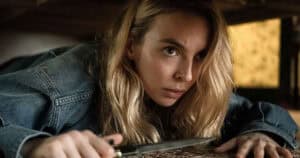




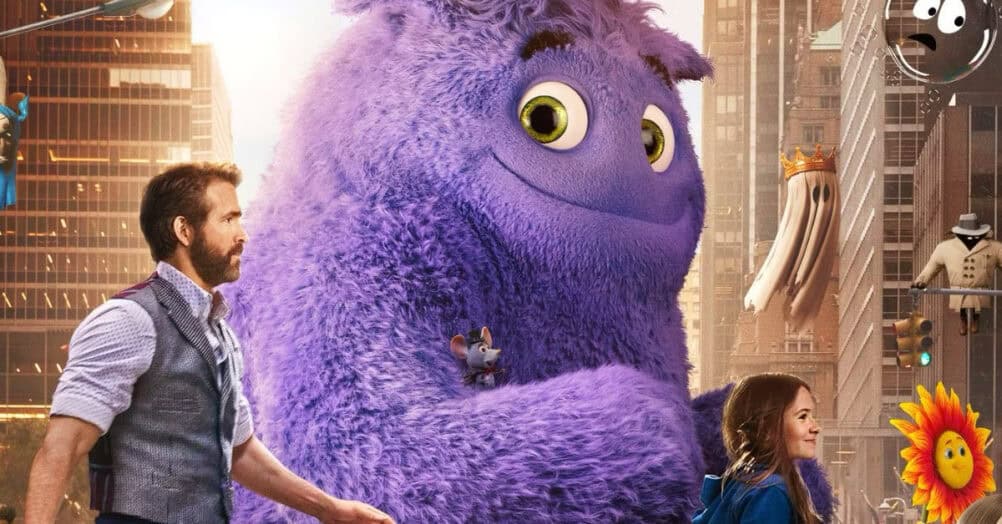

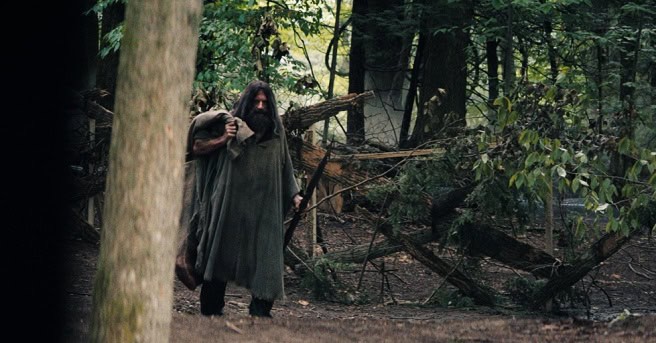
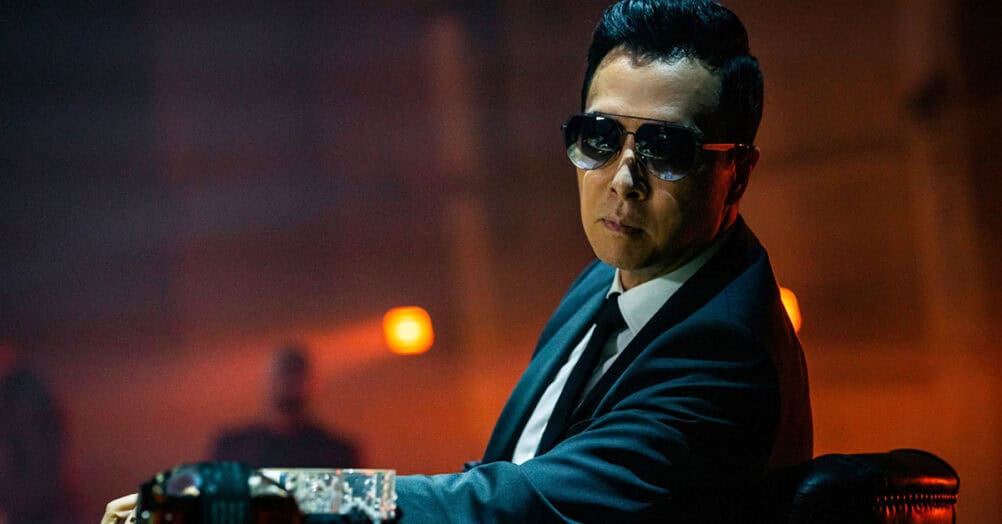
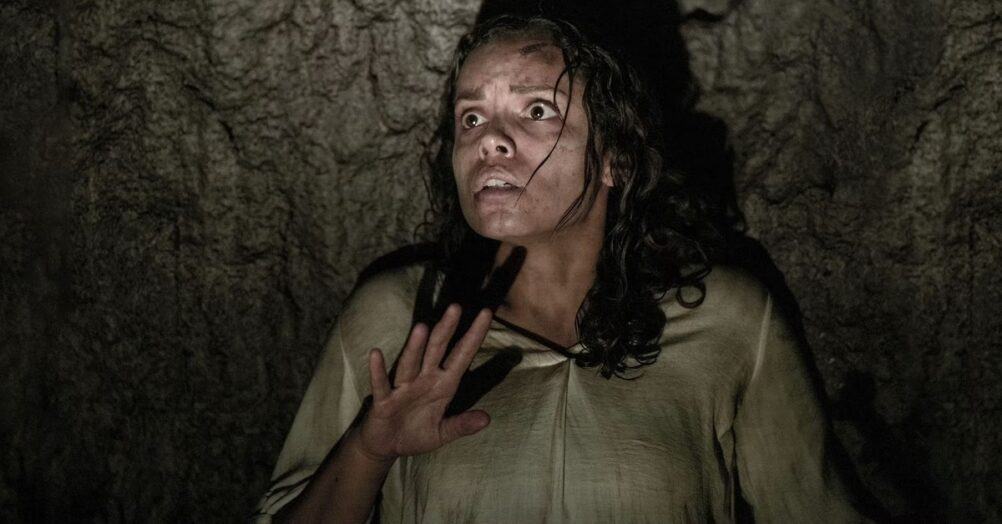

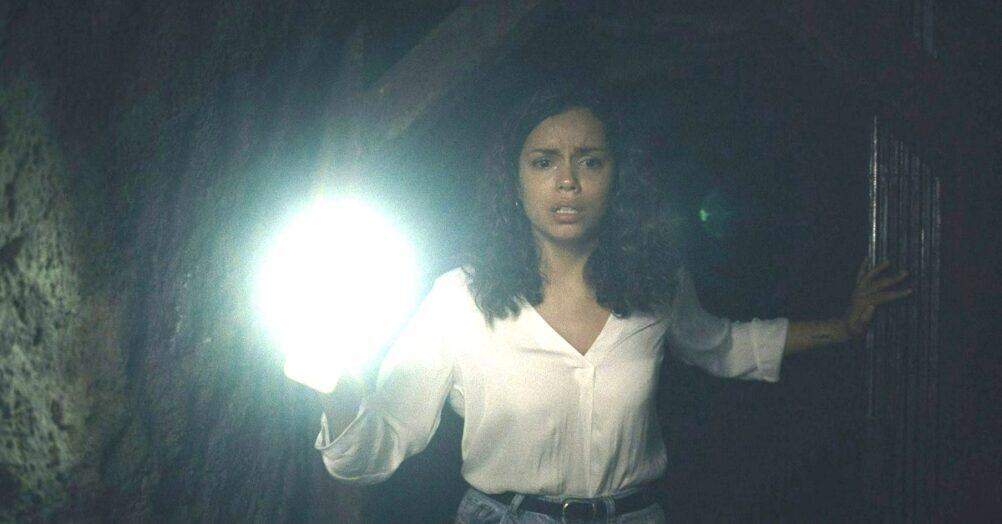

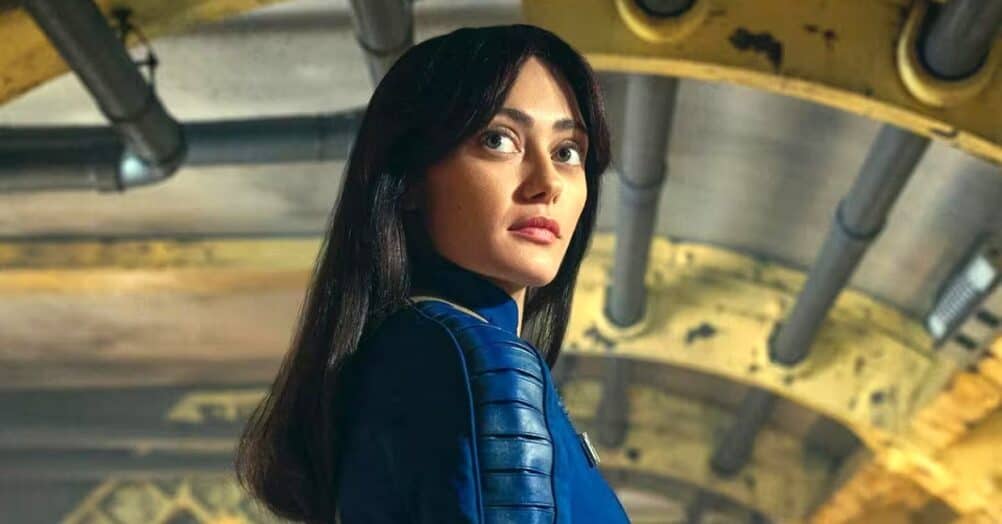
Follow the JOBLO MOVIE NETWORK
Follow us on YOUTUBE
Follow ARROW IN THE HEAD
Follow AITH on YOUTUBE